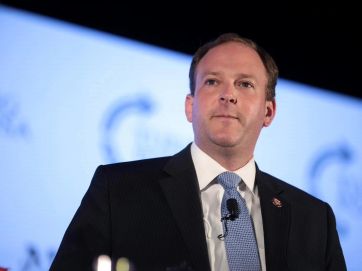April 4, 2016
President Mary-Beth Cooper
Office of the President Springfield College
263 Alden Street
Springfield, MA 01109
Dear President Cooper,
I write concerning the situation of a member of the faculty of Springfield College, Professor Dennis Gouws of the Humanities Department.
I know you have met with Professor Gouws and are to some degree familiar with his complaint. I am writing to you as an interested outside party. The National Association of Scholars has for almost thirty years concerned itself with protecting academic and intellectual freedom in colleges and universities. We have played a role, sometimes publicly visible, often not, in helping to resolve many cases where academic administrators acted against the guiding principles of higher education. Springfield College is, of course, a private institution, and as such enjoys considerable latitude in setting its own policies. I respect your college’s freedom to do so.
That, however, is not the whole of the matter. Colleges are also enjoined to respect some basic principles of respect for the life of the mind and the independent character of faculty members acting within areas of relative autonomy. It is unusual when a faculty member is singled out for censorious treatment for teaching a course that was approved though the ordinary procedure for course approval, listed in the course catalog, and taught successfully for eight years.[1] That, however, appears to be what has happened to Professor Gouws in reference to his course ENGL276 “Men in Literature.” The handling of his course is not the whole story but it appears to be the gravamen. Other actions that threaten or have actually harmed his rights as a faculty member stem from his department’s or the college’s hostility to this course.
There is, of course, a broader context to this hostility. Not long after the Office for Civil Rights (OCR) in the Department of Education issued its “Dear Colleague” letter of April 4, 2011, many colleges and universities have been taking what they regard as steps to protect themselves from allegations of mishandling sexual harassment complaints. OCR has listed institutions that it is investigating for such complaints. Colleges and universities are also concerned about liability for civil suits filed under claims that they failed to act diligently in the face of credible evidence of sexual harassment. To make matters even harder for colleges and universities, the standards of evidence that apply both in federal regulation and civil courts are murky and shifting.
Faced with these potential problems, some colleges and universities have overreacted. They have adopted official policies that injure the rights of the accused and they have taken other actions that preempt the legitimate choices of faculty members to teach particular subjects or pursue particular pedagogies.
The overreach has not gone unnoticed—or unpunished. Courts have awarded significant damages to students (or former students) who have filed suit on the basis that their rights of due process have been abridged when their colleges or universities have found them guilty of sexual harassment or sexual assault on the basis of thinly-supported accusations. There have been several successful such cases so far, starting with the July 2015 ruling against the University of California at San Diego. In numerous other cases, faced with the likelihood of losing in court, colleges and universities have settled with the plaintiffs. On the faculty side, there has also been a rapid rise in the number of highly publicized complaints against colleges and universities for abridging due process and trampling academic freedom in an apparent effort to demonstrate to OCR that the institution is zealous in its commitment to execute judgment on individuals preemptively.
The “witch hunt” atmosphere that is present on some campuses has begun to spread national alarm. The AAUP’s release on March 24, of its new draft report, The History, Uses and Abuses of Title IX, is one sign of this. But there are many other indications that both mainstream opinion in higher education and the view of the general public, including parents of college students, has shifted to alarm at the excesses of the steps that colleges and universities have taken to enforce the new sexual harassment regime on campus.
No one doubts that sexual harassment is illegal and wrong. But there are lots of doubts about the kinds of actions that are now corralled into the category by means of elastic and opportunistic definitions and by the actions of college and university officials who seem to be animated by the attitude of “shoot first, ask questions later.”
I don’t know whether any of these remarks apply to Springfield College. I have, however, read Provost Jean Wyld’s letter of March 15 to Professor Gouws, in which she refers to his teaching in ENGL113 as transgressing on the principle that “assignments must never discriminate by focusing on only one gender to the exclusion of others.” Provost Wyld concludes her letter with the further warning that Professor Gouws must modify his courses so that their content and assignments “are neither discriminatory nor foster a potential hostile environment for students of either gender.” In the body of the letter, Provost Wyld also mentions concerns about the content of ENGL113 “from an academic and even legal perspective.” The academic perspective she mentions seems clear: the concern that some of the material in the course intrudes “material into a course that has no relation to the subject” or fails “to present the subject matter of the course as announced.” The provost’s letter does not elaborate the “legal perspective.”
Professor Gouws has, however, also been invited to meet with Springfield College General Counsel Christopher Neronha about these matters. You reference this in your letter to Professor Gouws of February 18, although your phrasing leaves it unclear whether the referral to Mr. Neronha was initiated by you or Provost Wyld (“[Provost Wyld] and I agreed that it would be appropriate for her as immediate supervisor of Dean Herzog, along with assistance from Mr. Neronha, to review this matter…”). My understanding of this is that you referred Professor Gouws’s complaint about the conduct of his dean Dr. Anne Herzog, and his department chair, Dr. Joyce Szewczynski, to Provost Wyld and Mr. Neronha. Professor Gouws in turn put some questions in writing to Mr. Neronha, who has declined to answer them, but wishes to meet with Professor Gouws in person.
I recite these details mainly as leaning towards two points. First, it does not appear to me that Springfield College has yet crossed any Rubicon. Second, it may be on the verge of doing so.
Any faculty member invited to speak to his college’s General Counsel about a complaint stemming from a veiled allegation of sexual harassment would be apprehensive. And Professor Gouws plainly is. He has not been accused of sexual harassment but he is told that a course he has been teaching for some years may itself be construed as sexual harassment and that his pedagogy in another course may also be construed that way. At this moment in the nation’s life and in the circumstances of higher education, these are momentous whispers. Careers have been ruined over less. The mechanisms of institutional intimidation have been activated. He has been told by figures of authority, “Conform.” He has not been told what happens if he doesn’t. But his application for sabbatical-leave was denied and his complaints about petty harassment (e.g. the repeated vandalism of his office door) have been met with an institutional shrug.
As an outside observer, I can say I have seen this sort of thing often enough at other colleges and universities to know where it leads.
And as the head of a national group that deals frequently with such matters, I should say two more things. First, I much prefer to help the president of a college see a matter clearly and make a good decision before the college makes more serious errors. Second, I fully understand that the only influence I can exercise beyond the power of private persuasion, is the power of publicity. As for that, you can check for yourself that the National Association of Scholars exercises that power conscientiously. We do not make trouble for colleges and universities for idle reasons, but if an institution persists on a path we believe to be mistaken, we bring our concerns to a national audience in an effective way.
We are, as it happens, much concerned about the excesses of colleges in their broad interpretations of “sexual harassment” and their heedless enforcement of preemptive rules. I would certainly take up a case in which a college mistreats an innocent faculty member merely for teaching a course or courses that focus on men in literature or the position of men on campus. There are many thousands of such courses focusing on women in colleges and universities, including some at Springfield College and, to my knowledge, not a single case of a faculty member accused of sexual harassment for teaching such a course. But even one course on men in literature is one too many? The story writes itself.
I understand that there are other issues that wrap themselves into this situation. How many non-literary works belong in an English course? Do other English courses in the Humanities department stray from the principle enunciated by Provost Wyld of wrongly including “material into a course that has no relation to the subject?” Provost Wyld says in her letter that “to assure ourselves” that Professor Gouws is not being singled out, “we have also reviewed the literature syllabi in the department,” and found no instances of other courses straying from the standard. If this matter proceeds, we will certainly go to the trouble to confirm that. We will have many other such questions.
But to start with, it is apparent that the Springfield College Humanities Department’s English curriculum is rife with “identitarian” courses: Native American Literature (the course description of which says that it includes “speeches and legends”—not exactly literature by a strict definition); Asian American Literature (which includes “essays and political texts”); and Women and Literature (where “emphasis is placed on the cultural position of women in the United States, emphasizing racial, ethnic, and class diversity”). There are numerous other courses that do not look “literary” in character, including Nature and Environmental Writers (deals with “spiritual issues and environmental issues and responsibilities”); Business and Professional Speaking; and Film as a Narrative Art. All of these may be perfectly good courses, but they contribute to the sense that the English department is at ease with a broad interpretation of what fits into its curriculum when it comes to politically correct themes and vocational preparation. The English Department just gets exercised when one of its senior faculty members ventures into a topic outside the usual identity-group agenda.
I understand that in a meeting in February 2015, with Professor Gouws, Humanities Department Chair, Joyce Szewczynski, presented several negative student evaluations to him as evidence that he must change an assignment in his course. Again, we would want to know whether it is the College’s practice to use student evaluations as the sole basis for mandating alterations in a course.
Perhaps ENGL276 “Men in Literature” should be reclassified as a course in another department. Perhaps the college erred in approving it in the first place. We are not of the view that once a course has been approved and taught it is necessarily eternal. But decisions over curricular matters should be grounded in principles that are clear, transparent, and relevant. ENGL276 has not languished for lack of students, and it has not been falsely advertised. It arguably fills an intellectual need for Springfield College students who might otherwise be presented with only one side of a major cultural debate. Quashing the course either on ideological grounds or out of fear that someone will attempt to use the course as the basis for a Title IX complaint against the college is not right. The College ought to defend its faculty members against intrusive government regulations, rather than serving as an eager enforcer of such regulations.
Finally, as a veteran of letters like this, I know that the usual response of a college president is, after checking with the general counsel, to send a bare acknowledgement or no answer at all. And in anticipation of that, I have adopted my own usual approach of giving a deadline. In the absence of a meaningful answer from you, this letter will be posted publicly along with other comment on April 25.[2] That could be superseded by a communication from Professor Gouws that his difficulties with his department and the college have been satisfactorily resolved.
Yours sincerely,

Peter Wood
President
[1] First as ENGL215, then as ENGL275 in 2005, 2007, 2008, and 2009; subsequently ENGL276 in 2011, 2012, 2014, and 2015
[2] Professor Gouws is under a deadline of April 14, from Dean Herzog, for her review of ENGL215. It would be constructive if this matter could be resolved before that date, or that the deadline be postponed pending resolution













